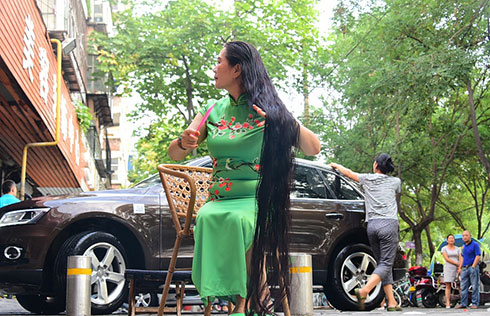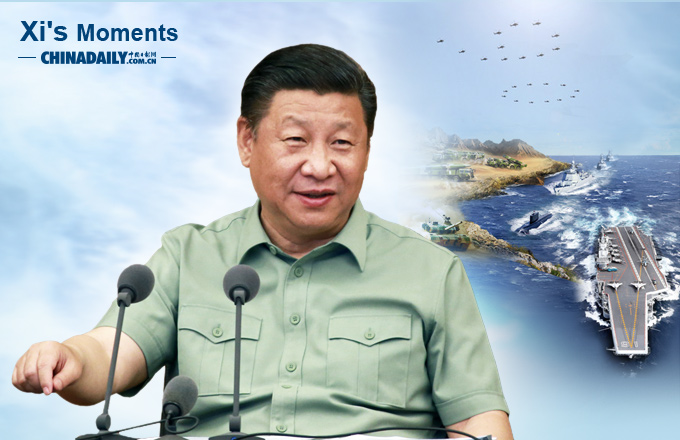Meeting enhances cultural ties
BRICS countries will enhance cultural ties via new alliances of libraries, museums, art galleries and children's theaters.
The combined efforts of national-level institutions from China, Brazil, Russia, India and South Africa were announced at the meeting of BRICS ministers of culture in Tianjin on Thursday.
"People-to-people connectivity is crucial for the development of the relationships among BRICS countries, and cultural exchanges are an important way to enhance such connections," said Minister of Culture Luo Shugang. "More concrete cooperation in cultural fields will better benefit ordinary people in the countries involved."
For example, after the Alliance of Libraries is set up, the five countries will map out a series of substantial cooperative projects concerning book preservation, document sharing and digital libraries.
Luo projected that cultural cooperation within the framework of BRICS will focus on fields including art performances, protection of cultural relics and development of the creative industry.
Mahesh Sharma, Indian minister of culture, said that the promotion of global economic partnerships and international peace and stability are key pillars of BRICS, and intercultural dialogue is the social foundation for cooperation.
More personnel exchange programs and training courses in the field of fine art will be set up, and BRICS art museum forums and fine arts exhibitions will be held every three years.
Vladimir Medinsky, Russian minister of culture, said that cinematic cooperation can play a pivotal role.
"We can thus discover more shared values," he said. "We also have some different values, but such coproduction can help to enrich each other's culture."
Delegates from the five countries signed a detailed five-year action plan for the implementation of the Agreement between the Governments of BRICS States on Cooperation in the Field of Culture, which was first agreed upon at a previous meeting in Russia in 2015.
In the area of cultural relic protection, BRICS countries will "jointly research the means to protect shared and trans-boundary cultural properties, and the possibilities of nominating these properties to be considered for inclusion in UNESCO's World Heritage List", according to the action plan.
The parties will sign agreements on the prevention of illicit trafficking of cultural properties and monitoring their import and export, while cooperation among commercial sectors in the cultural industry, including animation, gastronomy and fashion, will be encouraged, it said.
Xie Jinying, director of the Ministry of Culture's Bureau for External Cultural Relations, said that most previous international cultural cooperation with China was based on bilateral agreements.
"However, more multilateral efforts are taking place now," Xie said. "If bilateral cooperation is a duet, multilateral cooperation is a chorus."
Unlike other multilateral frameworks, which often involve China and other countries in a particular region, BRICS includes five representative countries from different regions.
"It will thus create stronger international ties," he said.
Xie also revealed that the conference in Tianjin marked the start of an annual meeting among BRICS ministers of culture, with the next meeting to be held in South Africa in 2018.
wangkaihao@chinadaily.com.cn
- Is it a kite or a shrimp?
- Chinese embassy in Dhaka celebrates 90th anniversary of PLA establishment
- Xi delivers important speech at rally marking PLA's 90th anniversary
- Woman's hair reaches nearly 2 meters 25 years later
- Vaccine for cervical cancer arrives on mainland after approval by authorities





















